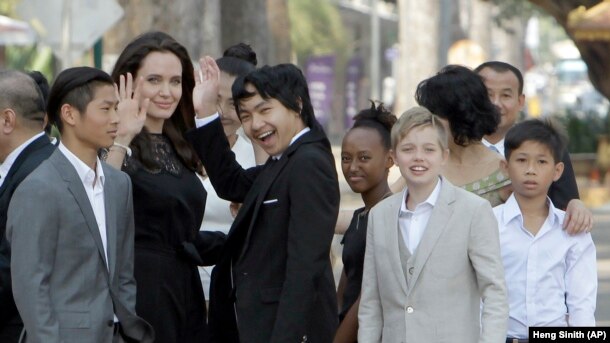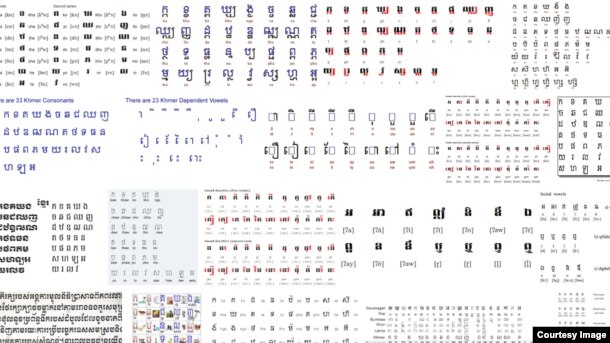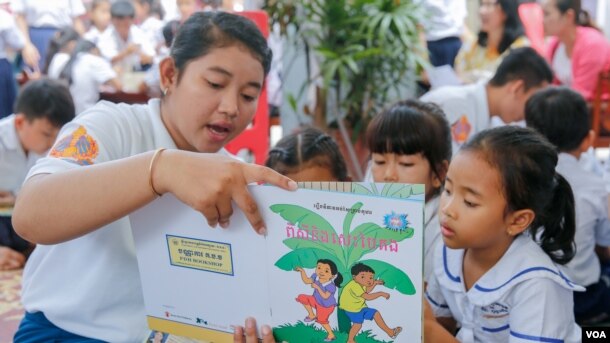Angelina Jolie's latest directorial effort is a first for her and many others.
The movie, “First They Killed My Father,” was filmed entirely in Cambodia and in the Khmer language.
Last month, Jolie and the movie's producers invited thousands of Cambodians to attend first showings of the film in cities across the country. For many, it was the first time they had seen a major movie in their native language.

“First They Killed My Father” tells of a young girl, Loung Ung, growing up in Cambodia in the 1970s. The violent Khmer Rouge government controls the country.
It will be released to an international audience on Netflix in September.
Filming in Cambodia and using the native language was Jolie's idea. Native Khmer speakers and language experts say it might lead to a new interest in Khmer.
Rim Tith Panha is a Khmer language and literature student at the Royal University of Phnom Penh. He says Khmer is not a popular subject among students.
He says, “I want to conserve Khmer identity and culture, which could be lost one day if no one cares to promote it.”
Panha says social media could be a special threat. He says it is quicker and simpler to romanize the script when communicating with friends online.

The Khmer language is believed to contain the largest alphabet in the world, with 74 characters. About 20 million people speak Khmer. That is a small group when compared to the world's major languages, like Mandarin, Spanish, English, Hindi, and Arabic.
Sok Soth is a linguistics expert from Victoria University in Melbourne, Australia. He says Khmer is “on the rise” because the language has gained the attention of scholars and researchers in the last five years.
He says many new Khmer words have been created.
The newer words are often more true to their meaning than those invented by older generations. For example, the new word for calculator means “calculate machine.” But the word for television, created by an older generation, means “distant vision.”
Chan Samnop is President of the National Council of Khmer Language. He says there is support for updating the Khmer language.
“The mechanism for correcting spelling in formal documents, as well as improving the education system, are mechanisms which we have been using to ensure that the Khmer language is still good and strong,” he says.

Professor Teri Yamada is with the Department of Asian and Asian-American Studies at California State University in Long Beach. She sees a need for more creative writing in Cambodian schools.
“Writing Khmer well--in clear and descriptive sentences with a story line other than for passing tests--is not a high priority in the public schools,” she said.
She told VOA Khmer that the Cambodian officials need to work with people who write stories and other literature in Khmer.
“If the government were serious about supporting Khmer language and literature, they would need to establish publication support for new writers,” she said.
There will likely be renewed interest in the Khmer language with the Netflix release of the movie, “First They Killed My Father.” But, Yamada says, that movies are less effective in conserving language than books.
I'm Dorothy Gundy.
Ith Sothoeuth and Khan Sukummono reported on this story for VOA Khmer. Dorothy Gundy adapted this story for Learning English. Caty Weaver was the editor.
We want to hear from you. Write to us in the Comments Section.
Words in This Story
vision - n. the ability to see: sight or eyesight
formal - adj. made or done in an official and usually public way
romanize - v. bring (something) under Roman influence or authority

